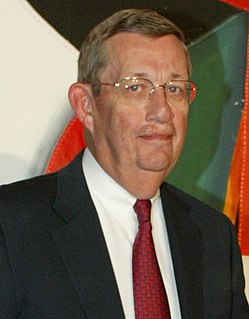A Quote by Morihei Ueshiba
Economy is the basis of society. When the economy is stable, society develops. The ideal economy combines the spiritual and the material, and the best commodities to trade in are sincerity and love.
Related Quotes
Instead of the primitive raw material economy, we will create a smart economy generating unique knowledge, new useful things and technologies. Instead of the archaic society, in which the leaders think and make decisions for everyone, we will become a country of intelligent, free and responsible people.
Today it's fashionable to talk about the New Economy, or the Information Economy, or the Knowledge Economy. But when I think about the imperatives of this market, I view today's economy as the Value Economy. Adding value has become more than just a sound business principle; it is both the common denominator and the competitive edge.
Entrepreneurship rests on a theory of economy and society. The theory sees change as normal and indeed as healthy. And it sees the major task in society – and especially in the economy – as doing something different rather than doing better what is already being done. This is basically what Say, two hundred years ago, meant when he coined the term entrepreneur.
We can't have extraordinary dynamism, innovation, and change in the economy and expect to have predictability and stability in our personal lives. It's not as if there are these big, giant institutions existing between us and the economy. In fact, these institutions have become tissue-thin. There is no mediation anymore. We are the economy; the economy is us.






































